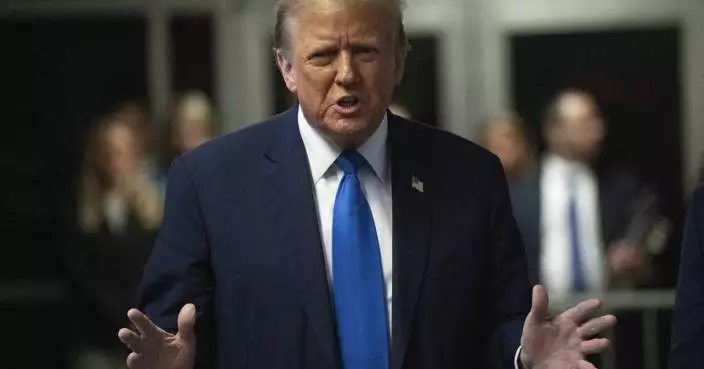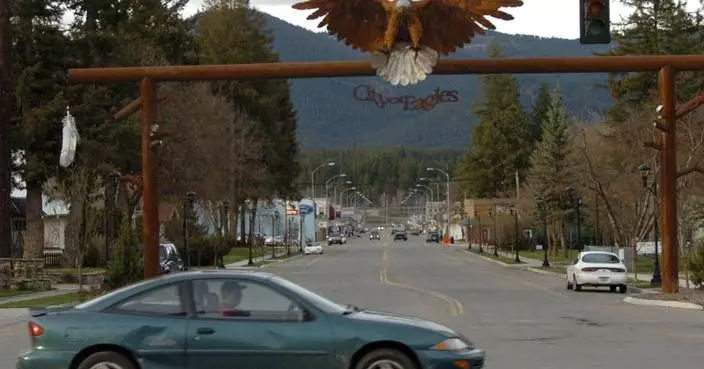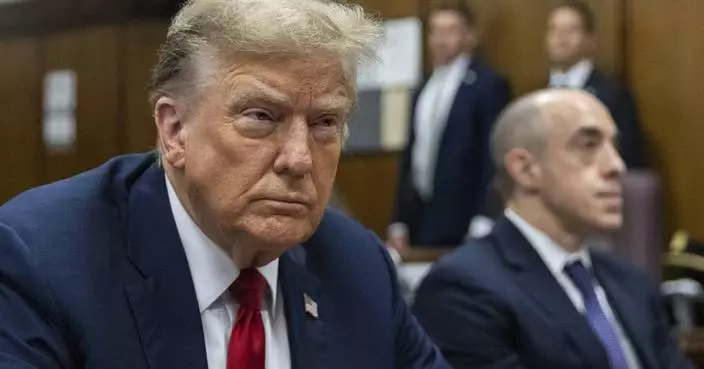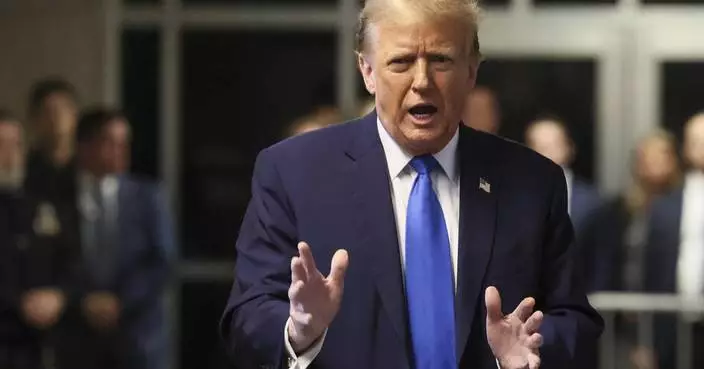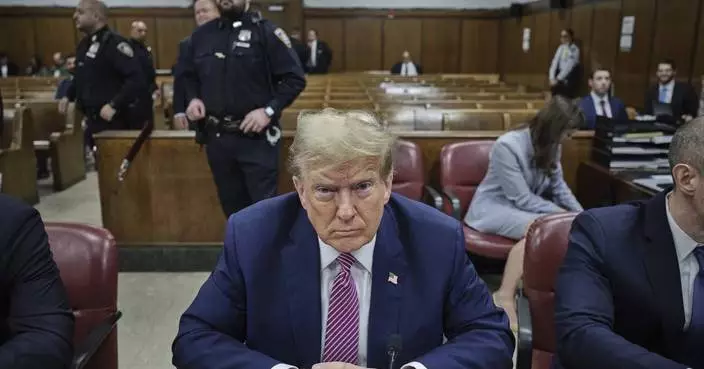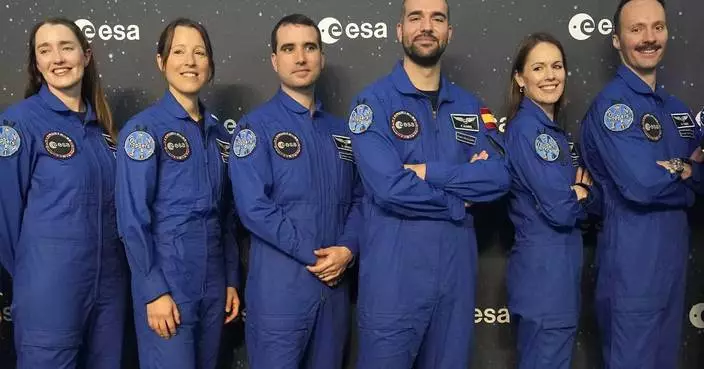President Donald Trump is expected to discuss new U.S. trade agreements with its North American neighbors and with China during an appearance Sunday at a convention of American farmers.
When Trump spoke to the American Farm Bureau Federation's convention last year, he urged farmers to continue supporting him even as they suffered financially in the fallout from his trade war with China and a partial shutdown of the federal government.
Trump's follow-up speech Sunday in Austin, Texas, will give him a chance to make the case to farmers that he kept two promises on trade that he made as a candidate - to improve trade with China and separately with Canada and Mexico - and that farmers stand to benefit from both pacts.
Trump signed a preliminary trade deal with China at the White House last Wednesday that commits Beijing to boosting its imports of U.S. manufacturing, energy and farm goods by $200 billion this year and next. That includes larger purchases of soybeans and other farm goods expected to reach $40 billion a year, the U.S. has said, though critics wonder if China can meet the targets.
Also last week, the Senate voted overwhelmingly in favor of the U.S.-Mexico-Canada Agreement, a successor to the 1994 North American Free Trade Agreement. The administration designed the new agreement to return some factory production to the United States, mostly automobiles.
NAFTA had triggered a surge in trade among the three countries, but Trump and other critics blamed it for U.S. job losses brought about when American factories moved production south of the border to take advantage of low-wage labor in Mexico.
The House passed the U.S.-Mexico-Canada deal in December and Trump is expected to sign it soon.
NEW YORK (AP) — A longtime tabloid publisher was expected Tuesday to tell jurors about his efforts to help Donald Trump stifle unflattering stories during the 2016 campaign as testimony resumes in the historic hush money trial of the former president.
David Pecker, the former National Enquirer publisher who prosecutors say worked with Trump and Trump's lawyer, Michael Cohen, on a so-called “catch-and-kill” strategy to buy up and then spike negative stories during the campaign, testified briefly Monday and will be back on the stand Tuesday in the Manhattan trial.
Also Tuesday, prosecutors are expected to tell a judge that Trump should be held in contempt over a series of posts on his Truth Social platform that they say violated an earlier gag order barring him from attacking witnesses in the case. Trump's lawyers deny that he broke the order.
Pecker's testimony followed opening statements in which prosecutors alleged that Trump had sought to illegally influence the 2016 race by preventing damaging stories about his personal life from becoming public, including by approving hush money payments to a porn actor who alleged an extramarital sexual encounter with Trump a decade earlier. Trump has denied that.
"This was a planned, long-running conspiracy to influence the 2016 election, to help Donald Trump get elected through illegal expenditures to silence people who had something bad to say about his behavior,” prosecutor Matthew Colangelo said. “It was election fraud, pure and simple.”
A defense lawyer countered by attacking the integrity of the onetime Trump confidant who's now the government's star witness.
“President Trump is innocent. President Trump did not commit any crimes. The Manhattan district attorney’s office should not have brought this case,” attorney Todd Blanche said.
The opening statements offered the 12-person jury — and the voting public — radically divergent roadmaps for a case that will unfold against the backdrop of a closely contested White House race in which Trump is not only the presumptive Republican nominee but also a criminal defendant facing the prospect of a felony conviction and prison.
The case is the first criminal trial of a former American president and the first of four prosecutions of Trump to reach a jury. Befitting that history, prosecutors sought from the outset to elevate the gravity of the case, which they said was chiefly about election interference as reflected by the hush money payments to a porn actor who said she had a sexual encounter with Trump.
“The defendant, Donald Trump, orchestrated a criminal scheme to corrupt the 2016 presidential election. Then he covered up that criminal conspiracy by lying in his New York business records over and over and over again,” Colangelo said.
Trump faces 34 felony counts of falsifying business records — a charge punishable by up to four years in prison — though it’s not clear if the judge would seek to put him behind bars. A conviction would not preclude Trump from becoming president again, but because it is a state case, he would not be able to pardon himself if found guilty. He has repeatedly denied any wrongdoing.
The case brought by Manhattan District Attorney Alvin Bragg revisits a years-old chapter from Trump’s biography when his celebrity past collided with his political ambitions and, prosecutors say, he scrambled to stifle stories that he feared could torpedo his campaign.
The opening statements served as an introduction to the colorful cast of characters that feature prominently in that tawdry saga, including Stormy Daniels, the porn actor who says she received the hush money; Cohen, the lawyer who prosecutors say paid her; and Pecker, who prosecutors say agreed to function as the campaign’s “eyes and ears."
In his opening statement, Colangelo outlined a comprehensive effort by Trump and allies to prevent three separate stories — two from women alleging prior sexual encounters — from surfacing during the 2016 presidential campaign. That undertaking was especially urgent following the emergence late in the race of a 2005 “Access Hollywood” recording in which Trump could be heard boasting about grabbing women sexually without their permission.
“The impact of that tape on the campaign was immediate and explosive,” Colangelo said.
Within days of the “Access Hollywood” tape becoming public, Colangelo told jurors that The National Enquirer alerted Cohen that Daniels was agitating to go public with her claims of a sexual encounter with Trump in 2006.
“At Trump’s direction, Cohen negotiated a deal to buy Ms. Daniels’ story to prevent American voters from hearing that story before Election Day,” Colangelo told jurors.
But, the prosecutor noted, “Neither Trump nor the Trump Organization could just write a check to Cohen with a memo line that said ‘reimbursement for porn star payoff.'" So, he added, "they agreed to cook the books and make it look like the payment was actually income, payment for services rendered.”
Those alleged falsified records form the backbone of the 34-count indictment against Trump. Trump has denied having a sexual encounter with Daniels.
Blanche, the defense lawyer, sought to preemptively undermine the credibility of Cohen, who pleaded guilty to federal charges related to his role in the hush money scheme, as someone with an “obsession” with Trump who cannot be trusted. He said Trump had done nothing illegal when his company recorded the checks to Cohen as legal expenses and said it was not against the law for a candidate to try to influence an election.
Blanche challenged the notion that Trump agreed to the Daniels payout to safeguard his campaign, characterizing the transaction instead as an attempt to squelch a “sinister” effort to embarrass Trump and his loved ones.
“President Trump fought back, like he always does, and like he’s entitled to do, to protect his family, his reputation and his brand, and that is not a crime,” Blanche told jurors.
The efforts to suppress the stories are what’s known in the tabloid industry as “catch-and-kill” — catching a potentially damaging story by buying the rights to it and then killing it through agreements that prevent the paid person from telling the story to anyone else.
Besides the payment to Daniels, Colangelo also described arrangements to pay a former Playboy model $150,000 to suppress claims of a nearly yearlong affair with the married Trump. Colangelo said Trump “desperately did not want this information about Karen McDougal to become public because he was worried about its effect on the election.”
He said jurors would hear a recording Cohen made in September 2016 of himself briefing Trump on the plan to buy McDougal’s story. The recording was made public in July 2018. Colangelo told jurors they will hear Trump in his own voice saying: “What do we got to pay for this? One-fifty?”
Pecker is relevant to the case because prosecutors say he met with Trump and Cohen at Trump Tower in August 2015 and agreed to help Trump’s campaign identify negative stories about him.
He described the tabloid's use of “checkbook journalism,” a practice that entails paying a source for a story.
“I gave a number to the editors that they could not spend more than $10,000” on a story without getting his approval, he said.
Tucker reported from Washington.
Follow the AP's coverage of former President Donald Trump at https://apnews.com/hub/donald-trump.
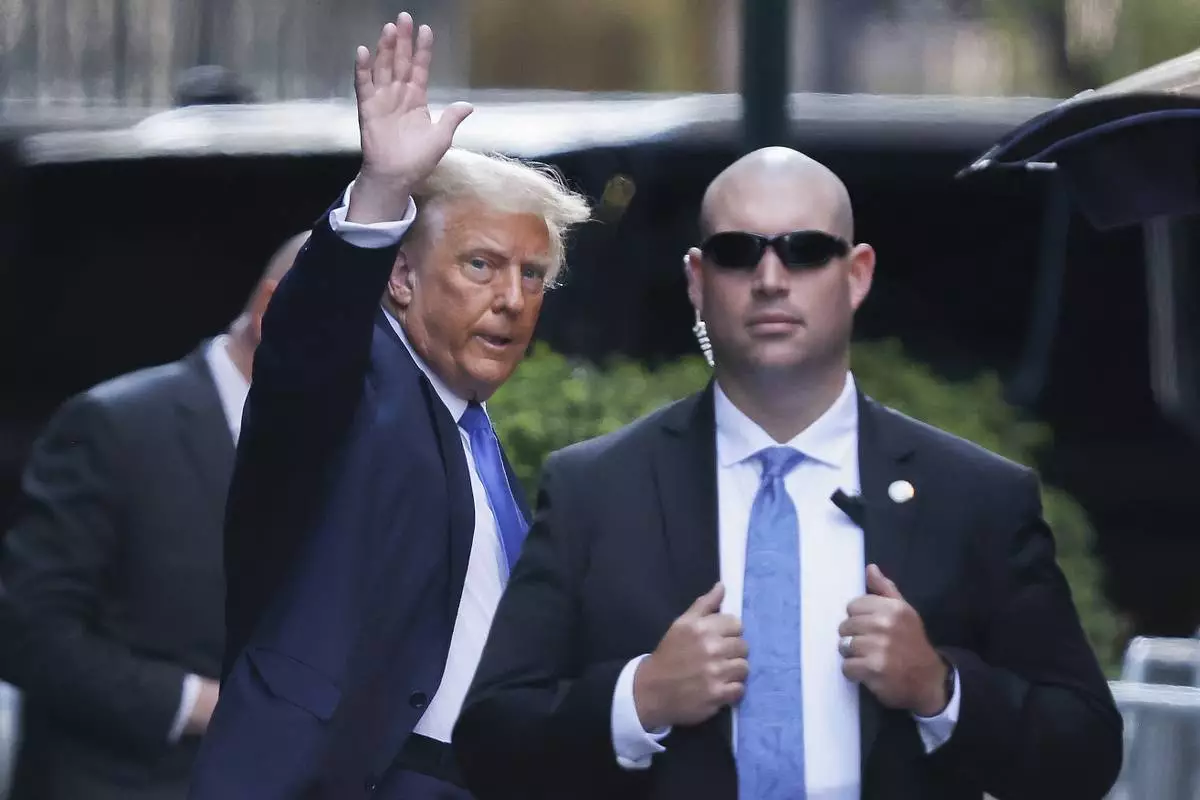
Former president Donald Trump leaves Trump Tower on his way to Manhattan criminal court, Monday, April 22, 2024, in New York. Opening statements in Donald Trump's historic hush money trial are set to begin. Trump is accused of falsifying internal business records as part of an alleged scheme to bury stories he thought might hurt his presidential campaign in 2016. (AP Photo/Stefan Jeremiah)
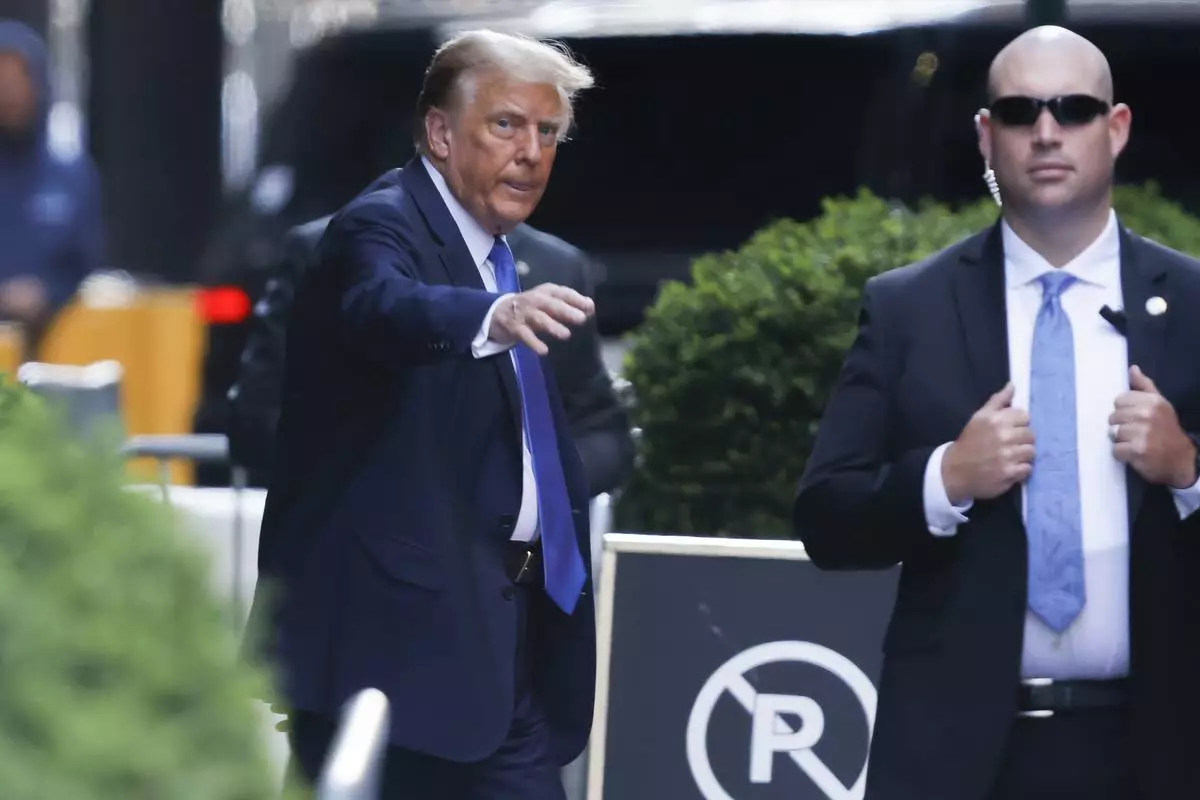
Former president Donald Trump leaves Trump Tower on his way to Manhattan criminal court, Monday, April 22, 2024, in New York. Opening statements in Donald Trump's historic hush money trial are set to begin. Trump is accused of falsifying internal business records as part of an alleged scheme to bury stories he thought might hurt his presidential campaign in 2016. (AP Photo/Stefan Jeremiah)
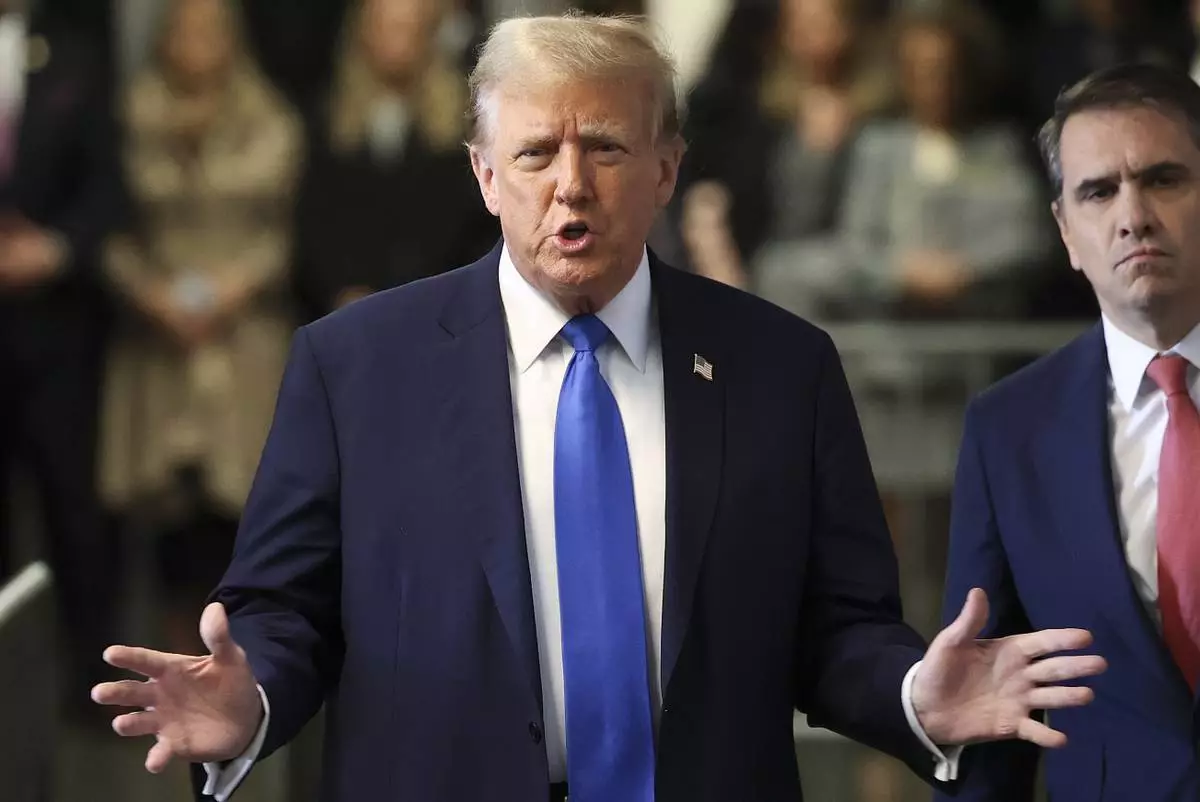
Former president Donald Trump speaks upon arriving at Manhattan criminal court, Monday, April 22, 2024, in New York. Opening statements in Donald Trump's historic hush money trial are set to begin. Trump is accused of falsifying internal business records as part of an alleged scheme to bury stories he thought might hurt his presidential campaign in 2016. (AP Photo/Yuki Iwamura, Pool)
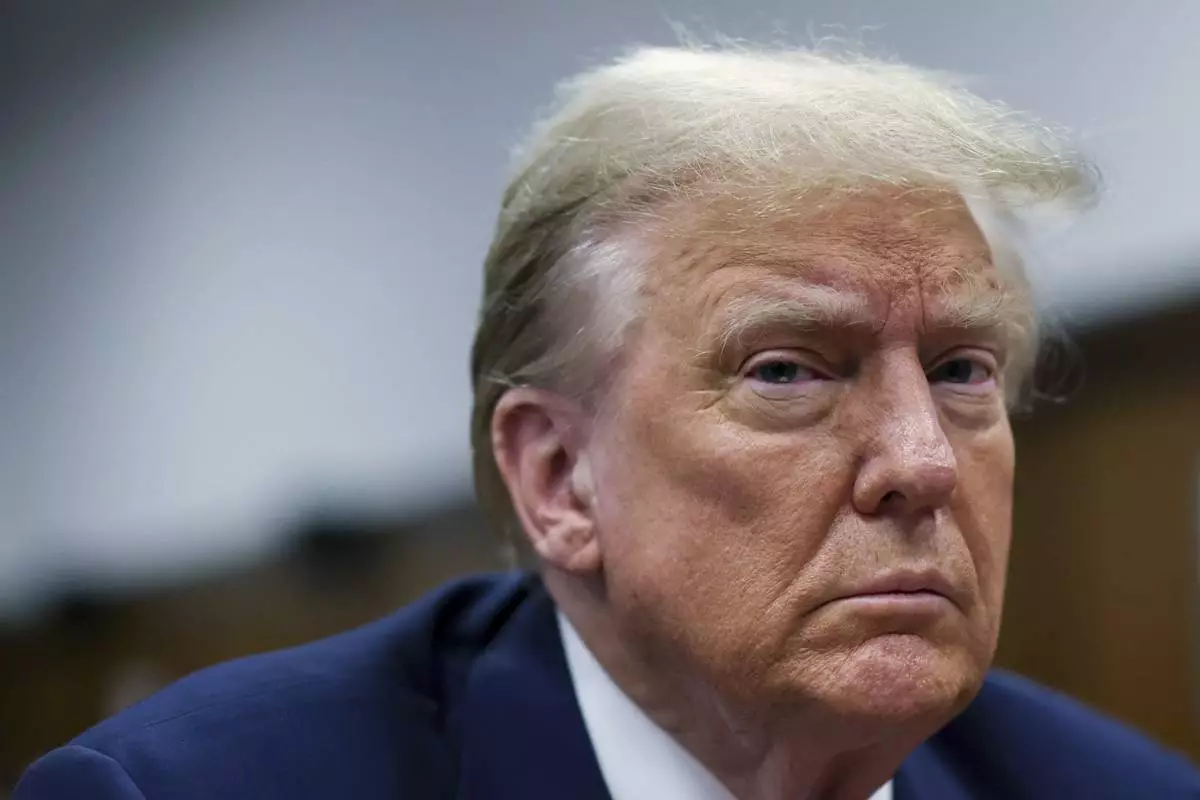
Republican presidential candidate and former President Donald Trump sits in the courtroom at his criminal trial at Manhattan state court in New York, Monday, April 22, 2024. (Brendan McDermid/Pool Photo via AP)
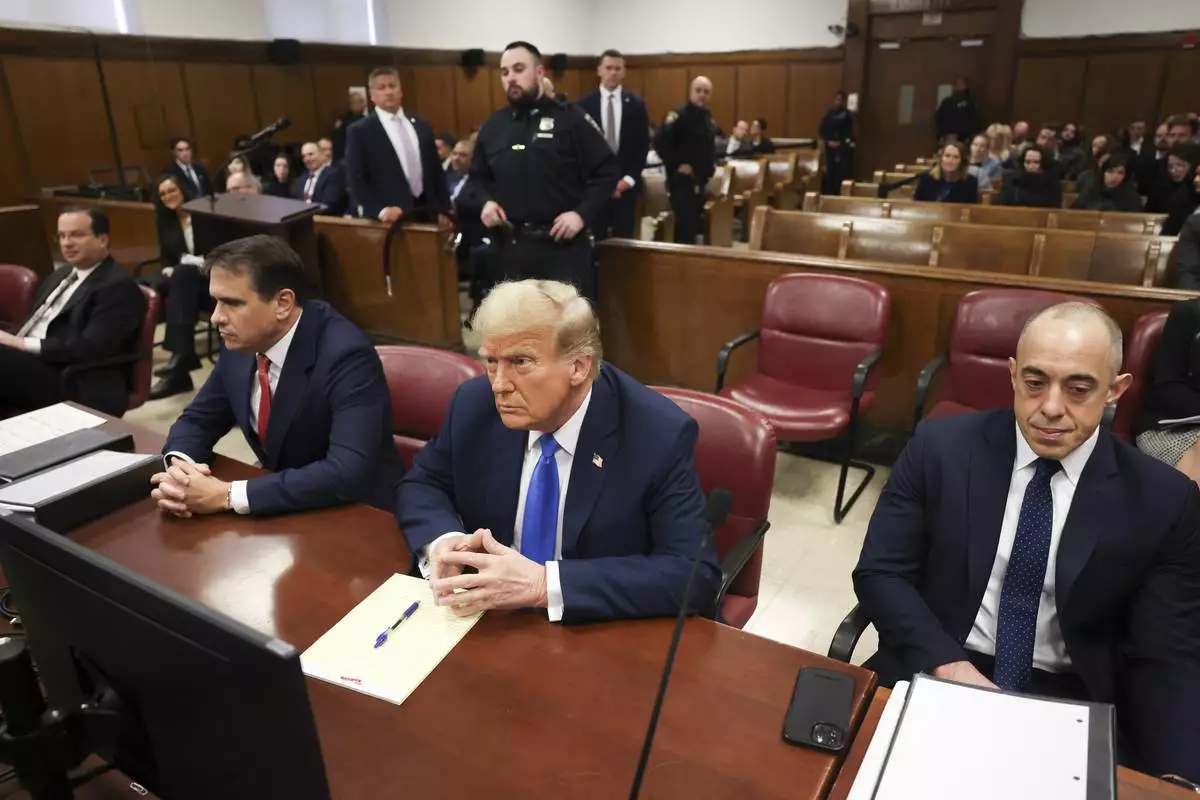
Former president Donald Trump, center, awaits the start of proceedings at Manhattan criminal court, Monday, April 22, 2024, in New York. Opening statements in Donald Trump's historic hush money trial are set to begin. Trump is accused of falsifying internal business records as part of an alleged scheme to bury stories he thought might hurt his presidential campaign in 2016. (AP Photo/Yuki Iwamura, Pool)
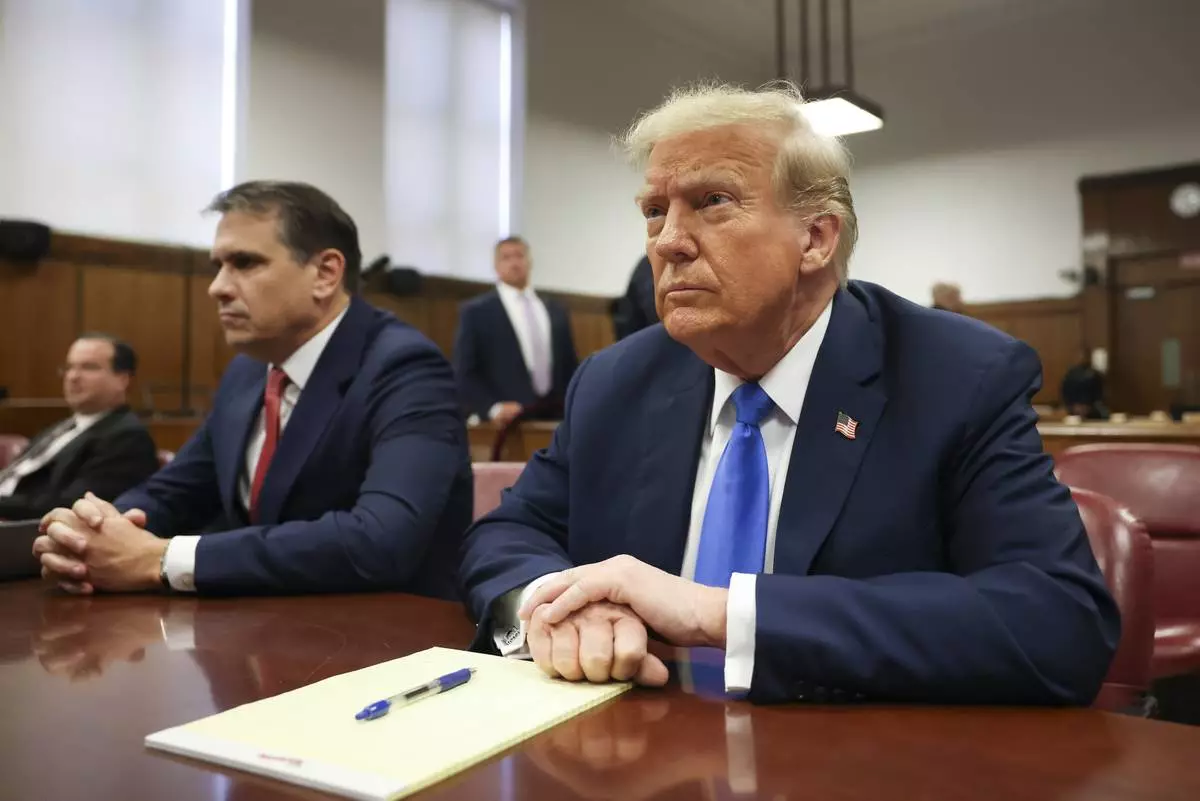
Former president Donald Trump, center, awaits the start of proceedings at Manhattan criminal court, Monday, April 22, 2024, in New York. Opening statements in Donald Trump's historic hush money trial are set to begin. Trump is accused of falsifying internal business records as part of an alleged scheme to bury stories he thought might hurt his presidential campaign in 2016. (AP Photo/Yuki Iwamura, Pool)
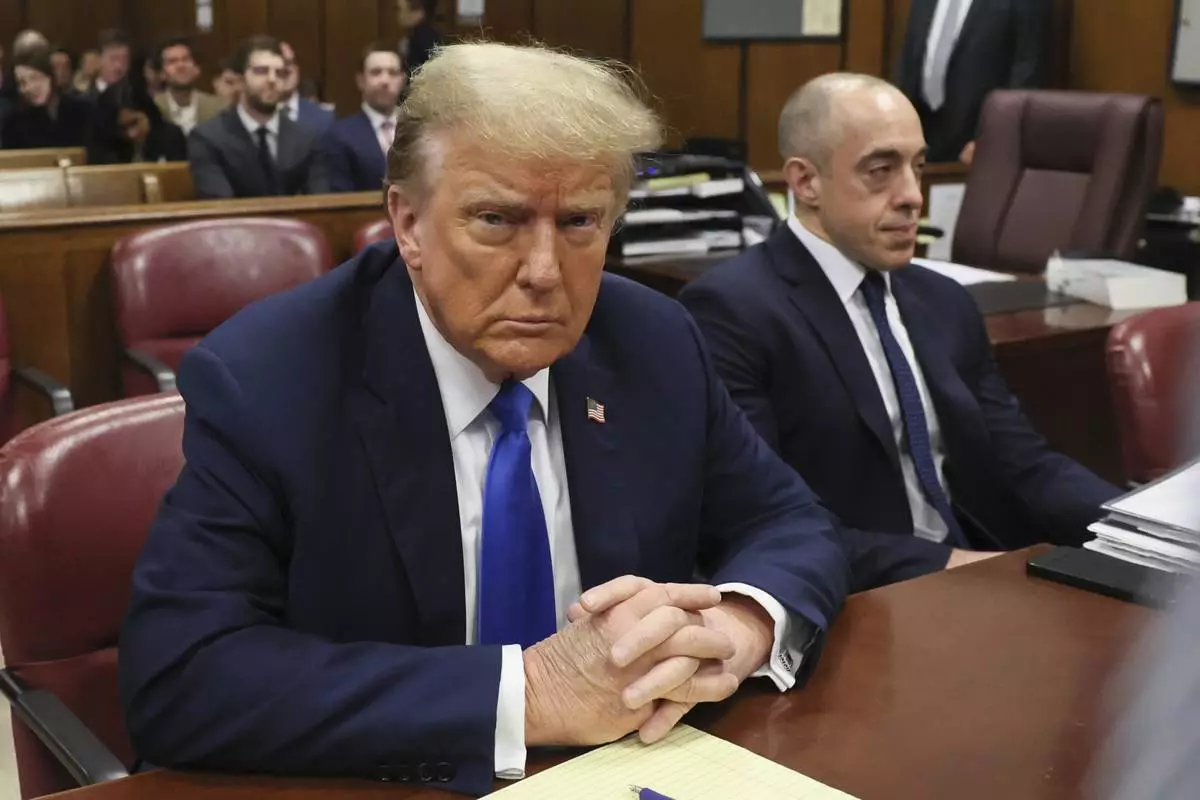
Republican presidential candidate and former President Donald Trump sits in the courtroom at his criminal trial at Manhattan state court in New York, Monday, April 22, 2024. (Brendan McDermid/Pool Photo via AP)
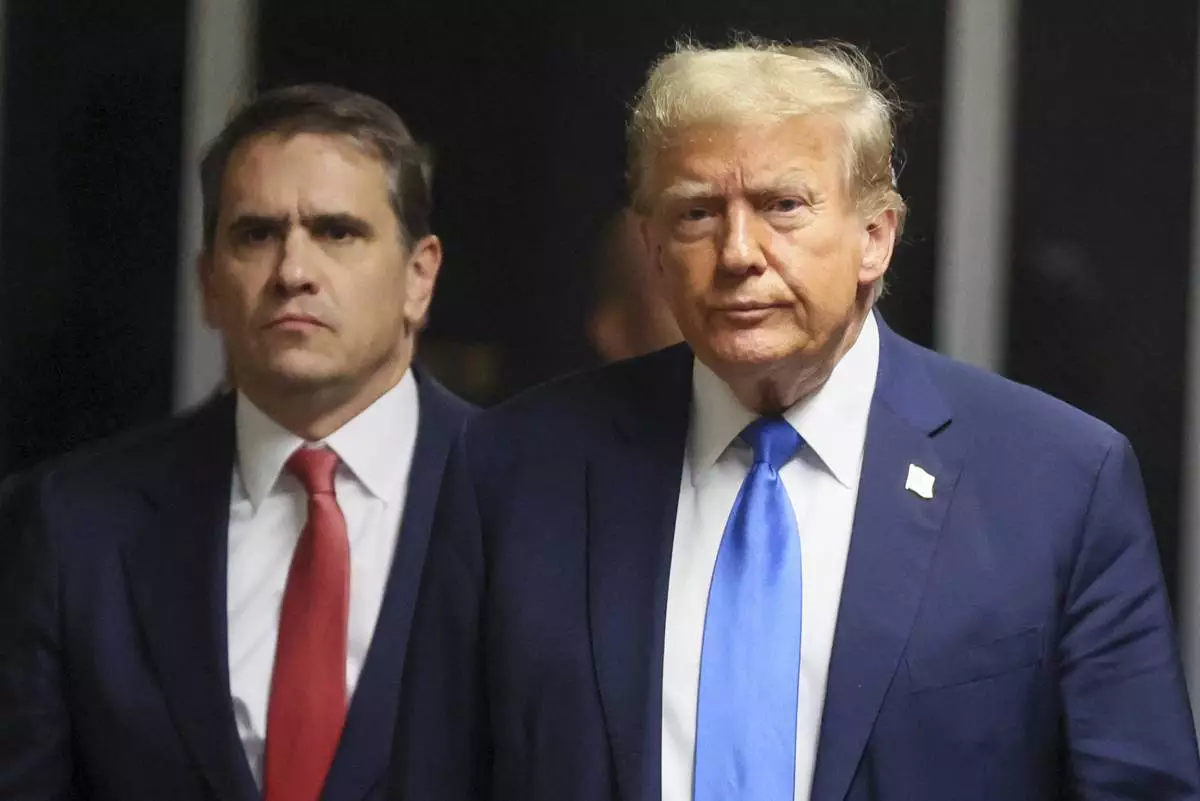
Republican presidential candidate and former U.S. President Donald Trump walks next to his attorney Todd Blanche, at Manhattan state court in New York, Monday, April 22, 2024. (Brendan McDermid/Pool Photo via AP)












